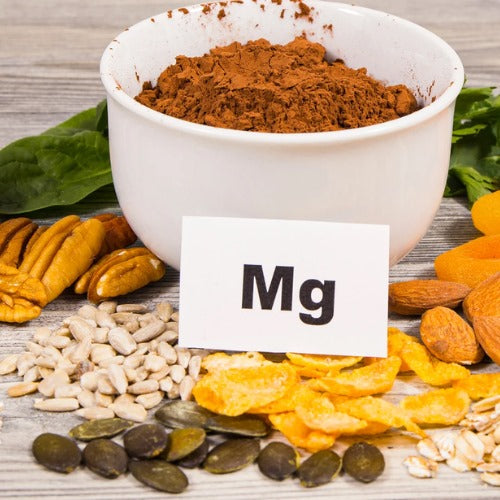Sleep and eating are complex interactions that greatly impact our general health. Finding a balance between these two pillars is crucial to maximising your productivity and wellness.
A Closer Look at the Sleep-Diet Link
The Effects of Diet on Sleep -
1) Hormonal Balance:
- Ghrelin and leptin are hormones that control appetite. Lack of sleep causes our bodies to create more ghrelin and less leptin, which increases appetite and desires for unhealthy, high-energy items like ice cream, chips, and cookies. Weight gain may result from this disturbance of our sleep cycles.
- Our sleep-wake cycle is regulated by the "sleep hormone" melatonin. Tryptophan, which is present in foods including poultry, turkey, and dairy, can increase the generation of melatonin, which in turn promotes sound sleep.
2) A Powerhouse of Nutrients:
- Compared to simple carbohydrates, which are present in sugary snacks and white bread, complex carbs, which come from whole grains like brown rice and quinoa, offer longer-lasting energy and enhance the quality of sleep.
- Protein: Eating a dinner high in protein, like grilled chicken or fish with vegetables, will help control blood sugar levels and encourage feelings of fullness, which can improve sleep quality.
- One naturally occurring mineral that promotes relaxation is magnesium. Magnesium-rich foods, such as dark chocolate, spinach, and almonds, can help you sleep soundly.
How Sleep Impacts Diet
- Cravings and Impulse Control: Lack of sleep can impair our decision-making abilities, leading to impulsive food choices and increased cravings for sugary and fatty foods.
- Weight Management: Adequate sleep is crucial for weight management. Sleep deprivation can disrupt hormonal balance, leading to increased appetite, reduced metabolism, and weight gain.
- Metabolic Health: Insufficient sleep can impair insulin sensitivity, increasing the risk of type 2 diabetes.
A Practical Approach to a Healthier You
Take into account the following useful advice to maximise your nutrition and sleep:
1. Individualised Dietary Plan:
- See a dietician: Develop a customised food plan with a certified dietician that fits your unique requirements, objectives, and way of life.
- The main focus should be on a balanced diet that is high in fruits, vegetables, whole grains, lean meats, and healthy fats.
2. Give Sleep Hygiene Priority:
- Maintain a Regular Sleep Schedule: Even on the weekends, go to bed and wake up at the same time every day.
- Calming Bedtime Routine: Before going to bed, read a book, take a warm bath, or meditate.
- For the best sleeping conditions, make sure your bedroom is cold, quiet, and dark.
3. Control Your Stress:
- Stress-Reduction Strategies: Engage in stress-reduction practices such as yoga, meditation, or deep breathing.
- Time management: Stress reduction and better sleep are two benefits of effective time management.
4. Mindful Eating:
- Be Aware of Your Hunger and Fullness Cues: Eat mindfully and refrain from emotional eating.
-
Portion Control: Be cautious of portion proportions to avoid overeating.
5. Drink plenty of water:
- Be sure to stay hydrated by drinking lots of water. Drink plenty of water throughout the day.
6. Discourage Stimulants:
- Cut Back on Alcohol and Caffeine: Avoid alcohol and caffeine, especially after dark.
7. Nutritious Food Practices:
- Cook at Home: To better manage ingredients and portion proportions, prepare meals at home.
- Eat Often: Skipping meals might result in overindulging later.
Additional Recommendations:
- Frequent Exercise: Make physical activity a frequent part of your day.
- Social Connection: Make time for those you care about.
- Limit screen usage before bed as part of the digital detox.
- Supplements: Before taking any supplements, speak with a healthcare provider.
Home Remedies for Better Sleep:
- Herbal Teas: Teas made from chamomile, lavender, and valerian root can help people unwind and sleep better.
- Aromatherapy: Stress reduction and better sleep are two benefits of essential oils like chamomile and lavender.
- Warm Bath: Before going to bed, take a warm bath to assist ease tense muscles and get your body ready for sleep.
One might create a better, happier life, increase your energy levels, improve your general well-being, and improve the quality of your sleep by implementing these useful suggestions and making thoughtful decisions. Keep in mind that even minor adjustments may have a big impact on your happiness and health.




